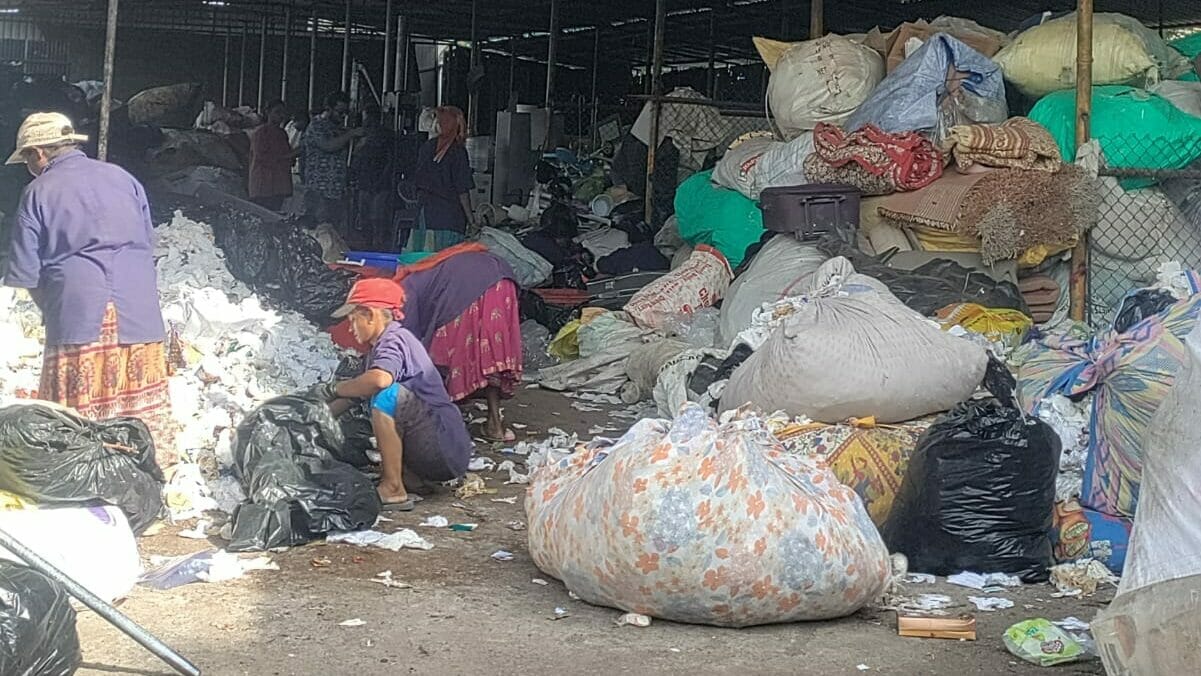Every Saturday, there are neatly lined up boxes of plastics, bottles, electronic waste and more at the gates of many societies in and around Thane. A truck picks it all up, and takes it to Kopri, where it is segregated and sent for recycling. This practice has been in place for a couple for years now, and the response has only multiplied.
Women workers, who segregate garbage for a living, and housekeeping staff of residential societies are the main links in efficient solid waste management. Workers, whose livelihoods depend on collection, segregation and selling of dry waste to scrap dealers, find it difficult to make ends meet. The scrap dealers do not compensate enough and sometimes refuse to take the waste collected by these workers.
So, along with Thane Municipal Corporation, we, Samarth Bharat Vyaspeeth (SBV), started the ‘Project Revitalisation’ within the Thane municipal city limits four years ago. We started this project so that the waste picking women would directly get the garbage, segregated and disposed by the citizens, the housekeeping staff would get a fair share of compensation and dry waste would be scientifically disposed off.
Our vision, with Project Revitalisation, is to eradicate dustbins and garbage trucks. We want to change the definition of waste, and develop it as a source of livelihood. Project Revitalisation employs many women, who used to work as waste pickers. At the plant in Kopri in Thane, these workers segregate all the waste and then send it further to recyclers. Segregation is on the basis of many categories like paper, plastics, glass, metal, electronics.
We have been recognised by UNICEF as ‘the most innovative recycling project’.
Read more: Mumbai’s no.1 source of trash: Food waste
Centre as an educational space
The waste gets collected and delivered to the centre in Kopri. We segregate plastic into various categories and process it partially and shred it. After shredding, it is sent to the recyclers. At the same center, some recycling activities, such as converting green waste to fuel briquettes, plastic to oils and nirmalya (flowers disposed after worship) to fertilisers.
The revenue generated from recycling is used for wages of women workers and welfare activities for them.
We also use it as a centre for educational purposes. Our aim is to get school, college students and even office employees to visit our plant and learn about the processes and how there is recovery of various materials from waste. They can watch and participate in these activities, leading to better awareness. Until now, we have had around 70,000 student visitors. We would like to develop it as a tourist spot as well.

Welfare activities for the women
Many women workers lived in areas without electricity. We have ensured that their houses have a working electricity connection. We have also facilitated water and gas connections and some monthly supplies like wheat and rice. We periodically help them repair their houses. Some upskilling activities such as sewing are conducted. The children of our workers are enrolled into the signal school that we run at Teen Haath Naka, Thane.
Signal School is Samarth Bharat Vyaspeeth’s (parent organisation) most famous initiative, wherein we started a school for children living on streets, provided meals and all study materials. This has had an amazing response, and over the years, many children from the school have proceeded to board exams and higher studies.
Along with recycling, we also undertake reusing and refurbishment. People often dispose things that they know longer need, even when they are in good condition. We reuse and refurbish such materials, which come to us through the waste collection and also through donations. These are distributed among the women, who work here and materials like books, school supplies that come to us are sent to the signal school.
Citizens’ response
We started from 20-25 people, and now we have reached out to two lakh citizens. This tells us that people are already aware and ready for change. They just need a working system and an easy method to recycle waste at their disposal. This is why we came up with the doorstep service with Project Revitalisation, wherein citizens segregate waste, we collect and recycle it.
In today’s times, when many people throw the everyday waste the next day, the citizens collect the recyclable solid waste in their homes and hand it over to the project revitalisation campaign every week or every fortnight. Isn’t this a big revolution? Waste being a resource, if disposed of properly, can be used for employment generation, reuse of natural resources and for preservation of the environment.
Project Revitalisation has been doing wonders and is growing by the day. One step at a time, Thane is moving towards greener and cleaner waste management practices with this initiative.
(Writing assistance provided by Janhavi Deshmukh)
Hello, can you tell me if the plastic waste collection is still active and the location and timing for the same?
Thanks